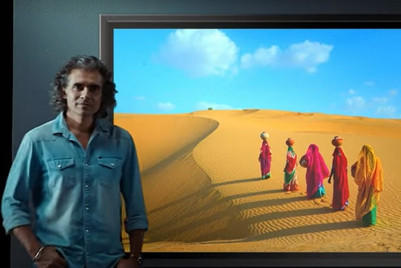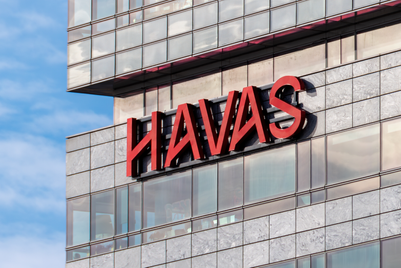
The din around the Indigo manhandling issue has died down. Media has focused on it mainly as a PR problem providing both sides of the story. The victim has chosen to stay quiet. The intensity and the creativity of social media jokes on brand Indigo have also lost momentum. Fickle media memories in today's times combined with perhaps a better pricing deal from Indigo may make this entire incident just a minor blip.
But all of this raises a more fundamental issue. At one end in a largely parity offering scenario across many categories the one factor that makes or breaks a brand is service. At the other end we also live in a world of extreme outsourcing where different aspects across the value chain are managed by other entities to get both cost and scale benefits. Given these two aspects it is increasingly critical for brands to manage customer experiences across all touch points --a concept that I have defined as Customer Interaction Model.
We experience the breakdown of this Customer Interaction Model almost every day of our lives. Banks that claim to be putting customers first, have call centers where one cannot get across to anyone. And if you do manage to navigate a complex Interactive Voice Response System then you get an answer that "all our customer service officers are busy at present. Please try again later". Authorised service centers of premium auto brands are staffed by personnel who are either rude or who look down upon potential customers who walk in, if they are not dressed to kill. The list goes on and on.
One of the worst personal experiences for me has been at the Intensive Care Unit of a hospital in Mumbai. When a dear one is in ICU and family members are trying to manage an emotionally challenging situation across so many fronts, this hospital has given absolute power and authority to the guards at the entrance to the ICU. Untrained, the guard personifies rudeness, screams at family members trying to get in and does not explain any of the hospital rules with any patience. In short these guards have been given power that makes then think they are bigger than the nurses and the doctors. Screaming sessions abound between emotionally fragile family members and this uncouth lot. Family members heave a sigh of relief when their patient is out of the ICU because they do not have to deal with this bunch. Clearly and sadly an institution riding on the demand supply equation loaded in its favour.
Given these ongoing breakdowns it’s now imperative for brands to define an ideal Customer Interaction Model based on their core brand values to harmonize and manage customer experience across multiple touch points. Else it is simply a story of created expectations and massive promises, never delivered or delivered inversely for the worst.
While the Indigo incident highlights this breakdown to the ultimate extent it is also important at this stage to list brands that are managing their Customer Interaction Model right.
Take Amazon India for instance. Multiple sellers provide products that they cannot control. But what happens when you complain about a certain perfume delivered being a fake. Well, Amazon can keep asking for the product and keep answering that they are doing their own validation. Instead Amazon not only apologised but actually credited back the amount linked to my complaint immediately and without any fuss. Think about it. Someone studied an email complaint, check internally and took all the right actions in record time without getting stuck in holding responses and inaction.
Another institution that has been managing this extremely well despite huge challenges in my experience is Shri Saibaba Sansthan Trust Shirdi.
With huge trepidation we ventured to Shirdi when my mum, a wheelchair bound dialysis patient made a request to go and pray. First, the online darshan arrangement process was extremely well structured and worked superbly. Once we reached there the process of arranging a wheelchair was extremely easy. Despite managing huge crowds, the security staff did not have an iota of rudeness and were kindness personified. And this, I assume, was outsourced security staff. They were smiling, gentle and considerate not authoritative and rude. They even helped with getting the wheelchair up some steps and ensured that the wheelchair bound passenger had a fulfilling prayer session.
Dealing with huge crowds and all kinds of possible behaviors cannot be easy. Managing different types of people including some who disobey the rules is even harder. And of course the security risk also has to be managed. All of these challenges and constraints are turned into a delightful experience for visitors. A hugely commendable achievement that cannot happen unless there is a defined customer interaction model which is then executed with focus, passion and vigor.
Time for brands to introspect and define their desired customer interaction model.
Once defined this needs to be executed across various outsourced providers and third parties that now play an integral part in the overall customer experience.
Till then the manhandling aspect of the Indigo incident will continue to manifest itself in different ways across different brands and institutions resulting in lost customers and lost loyalty. Hopefully no brands will make customers gain scars, wounds and punch marks going forward.
(The author is a senior consumer marketing and financial services professional based in Vietnam who has lived and worked in India, Japan, Hong Kong, Singapore and Dubai. His book "Marketing Chronicles" is available on Amazon India , Flipkart and at key online/ physical book stores.)
We invite readers to share their own similar brand experiences on [email protected]. The best responses will be published.


.jpg&h=334&w=500&q=100&v=20250320&c=1)

.jpg&h=334&w=500&q=100&v=20250320&c=1)

.jpg&h=334&w=500&q=100&v=20250320&c=1)


.jpg&h=334&w=500&q=100&v=20250320&c=1)









.jpg&h=268&w=401&q=100&v=20250320&c=1)
